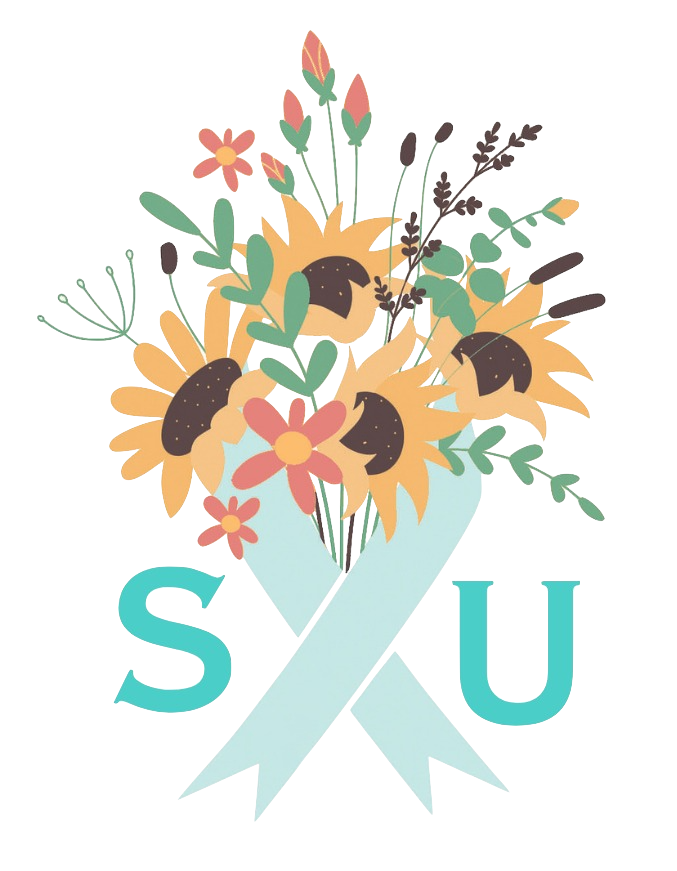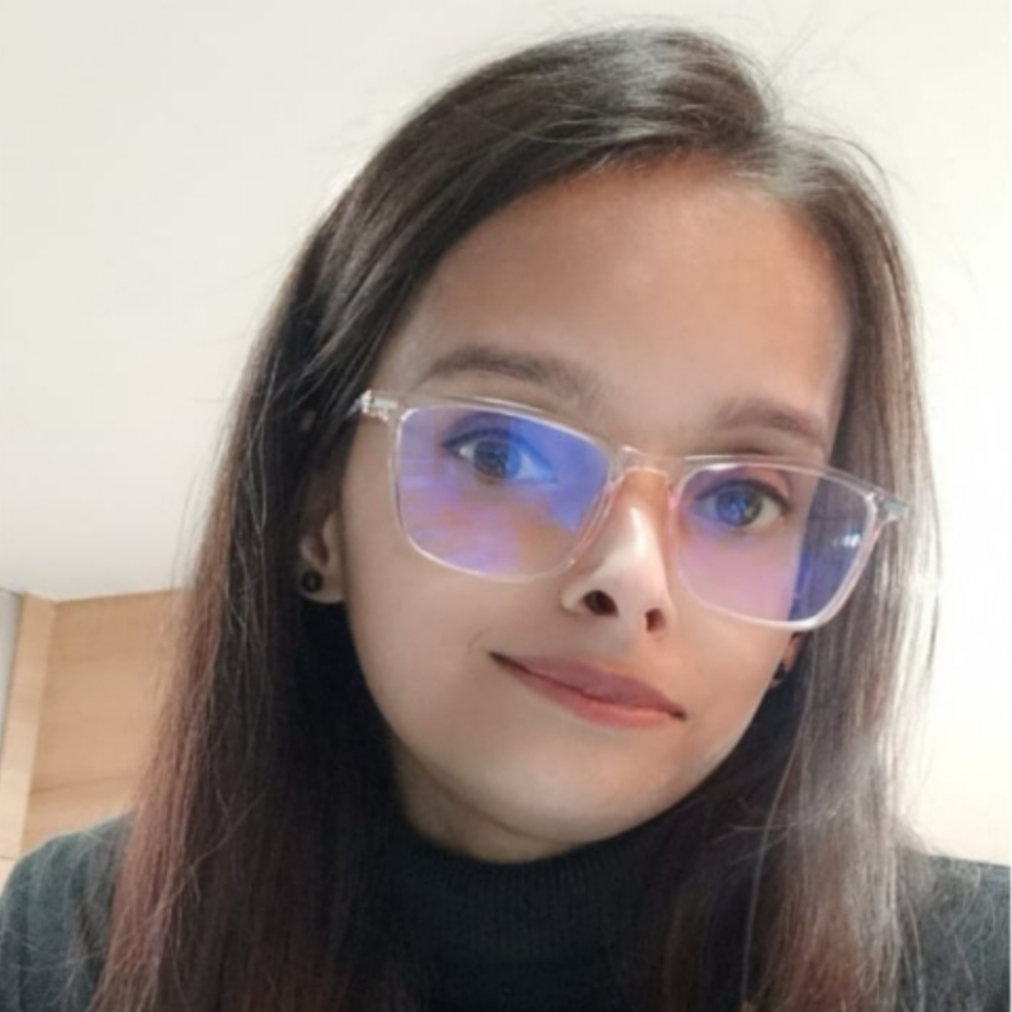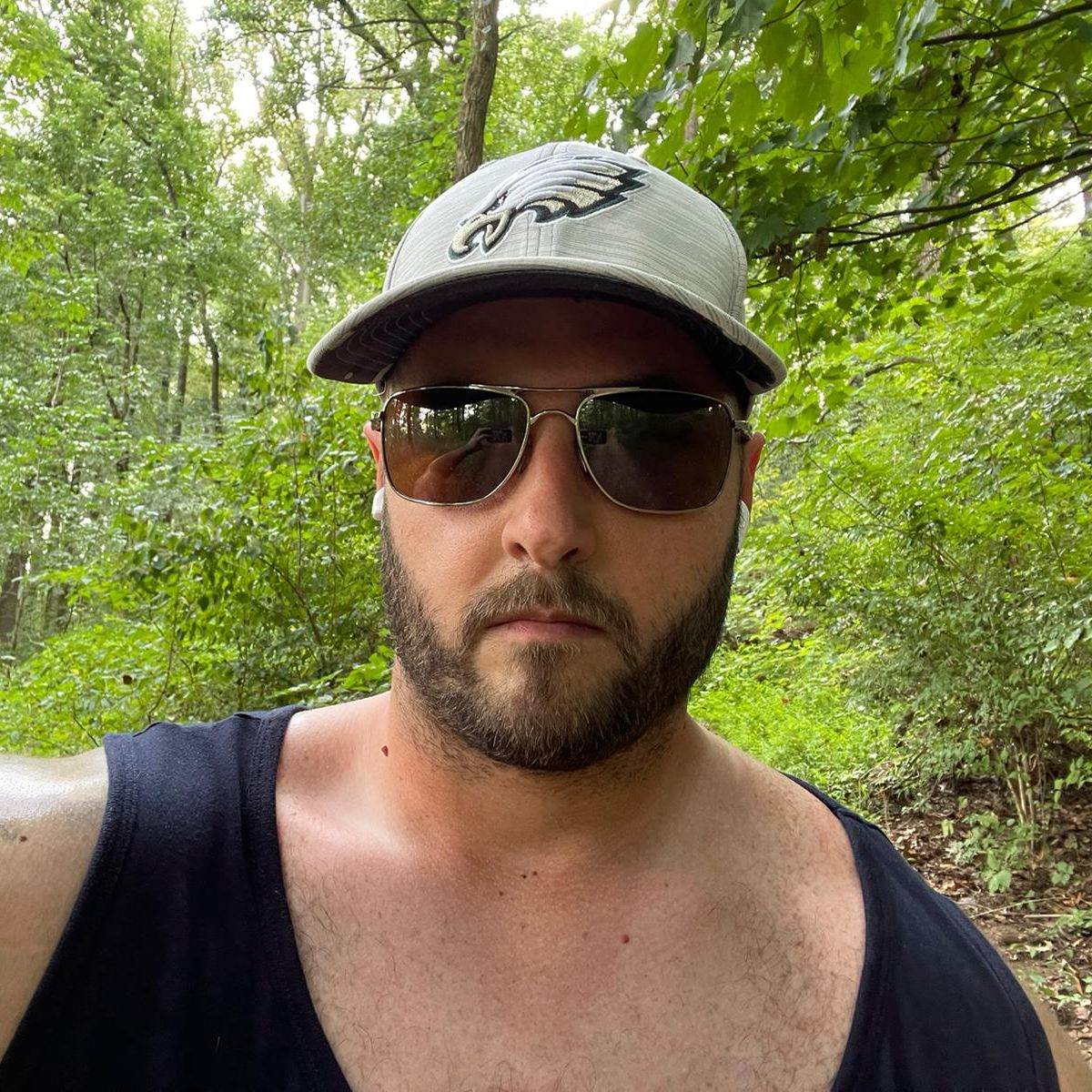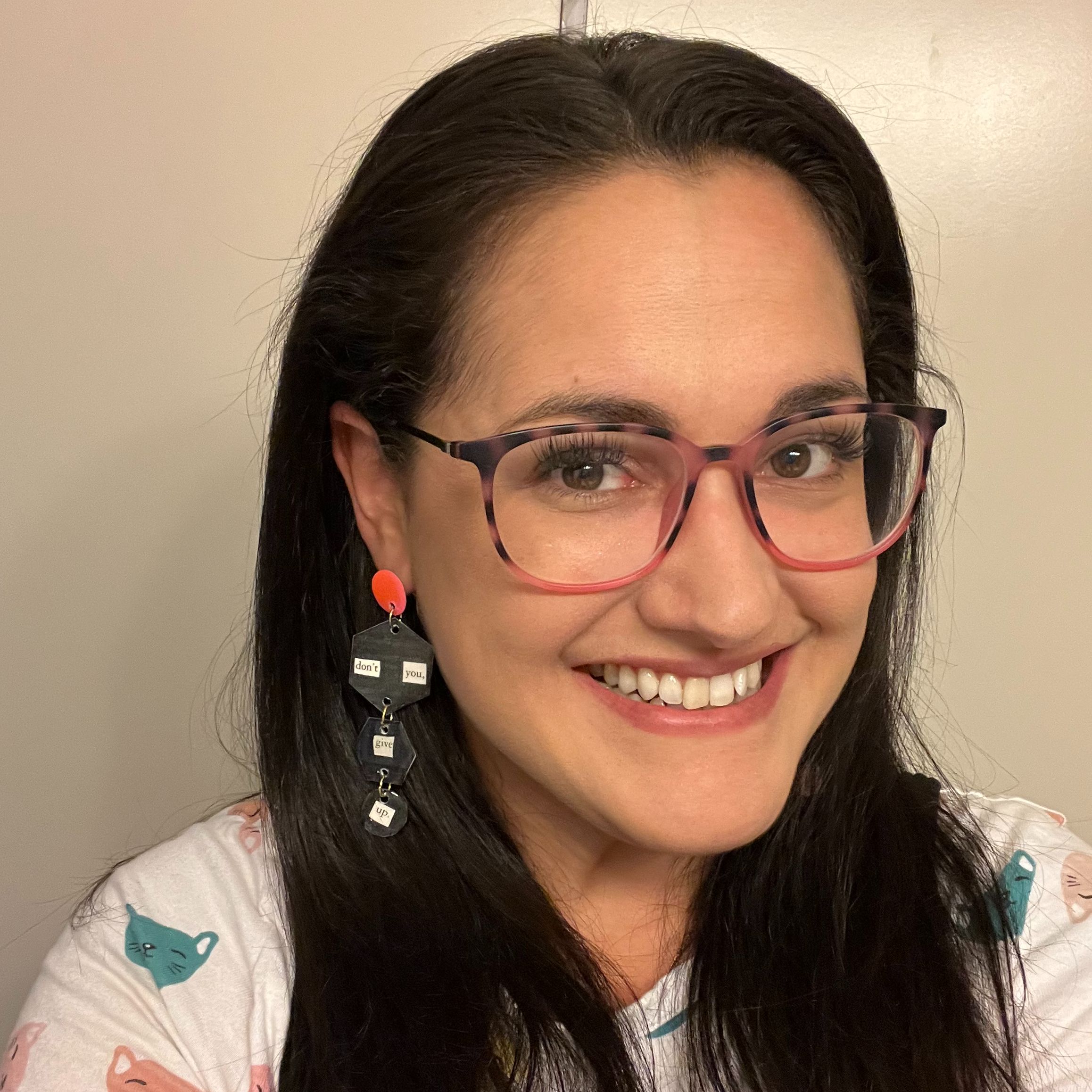New York City, New York (United States)
TAMEKA NELSON
Scleroderma Stories Issue 5
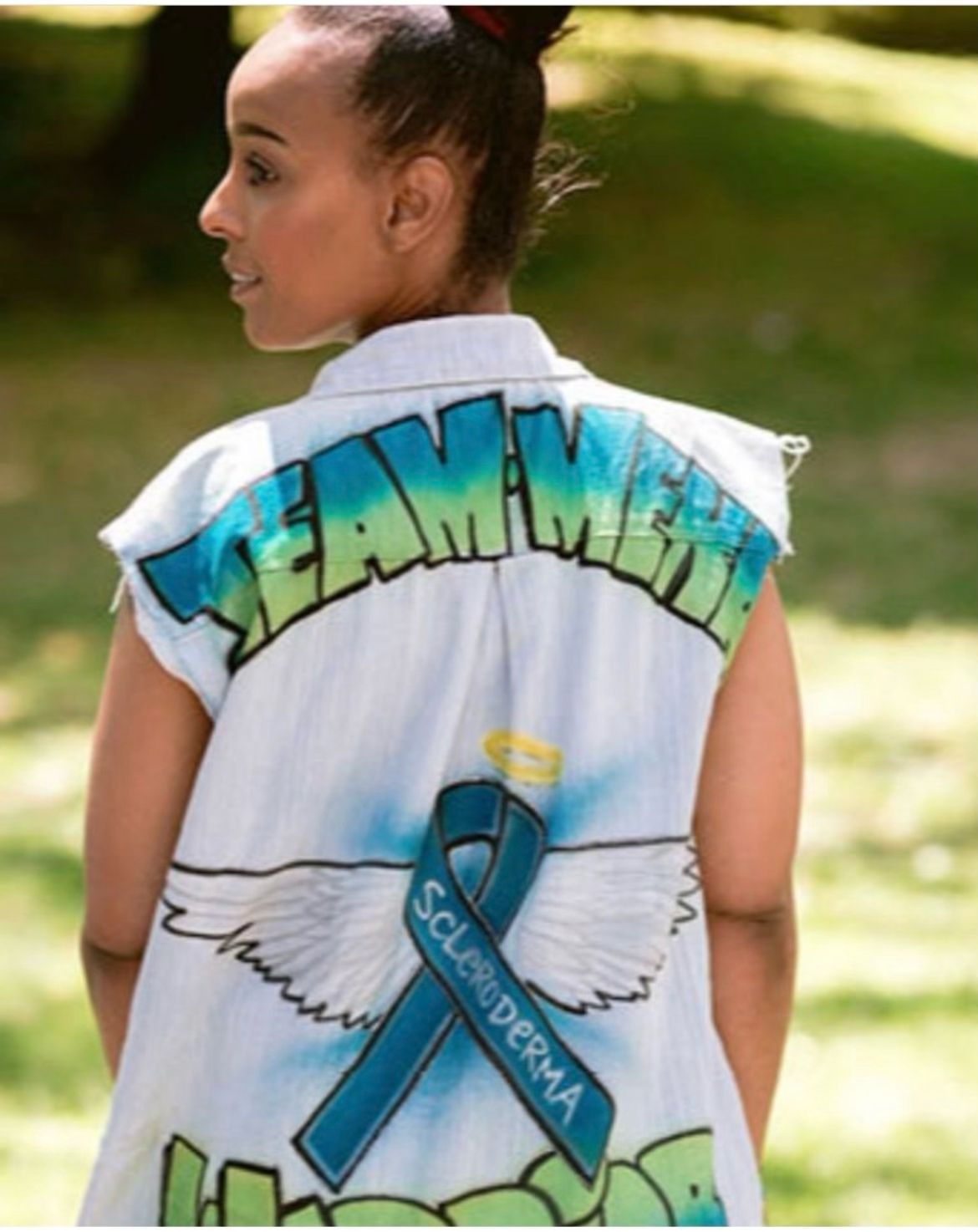
Please introduce yourself
My name is Tameka Nelson. I am 49 years old. My birthday is March 17th – St. Patrick’s Day. I’m a pisces. I have three children: Brian (who is 28), Tyler (who is 20), and Noah (who is 15). I have two grandchildren, Storm (age 9) and Harmony (age 6)
I’m a guidance counselor at a school in New York, in the Bronx. I enjoy dancing, having fun, and spending time with family and friends
What led to your diagnosis?
I was diagnosed in 2012. I was having trouble breathing, and I thought I had bronchitis, which I’d had in the past. I thought it was my bronchitis resurfacing. When I was lying down and turned to my right side, I was gasping for air. I was coughing and coughing, and I couldn’t stop. So, I went to the doctor. I was out of work for about three or four days.
The doctor checked my lung capacity and all that stuff. She said, “Well, it’s your bronchitis. I’m going to give you Albuterol. I need you to take it, and then you’ll come back for a follow up.” I got the Albuterol prescription and started taking Albuterol. Normally, you would see a difference pretty much immediately, but I wasn’t seeing any change in my breathing or in my coughing. When I would go to sleep, it was still the same thing.
As the days went on, I noticed that my ankles started to swell up. I went back to work because I was feeling a little bit better. I went to my supervisor at the time and was like look at this! I was laughing about my swollen ankles because I didn’t really think it was a serious thing. She said, “No, sweetie, that’s a serious concern. You need to go back to the doctor.” I said I’d go later. She was like, “No, you need to leave, like, right now.”
So I went back to the doctor. They ran an ANA test (Antinuclear Antibody Test) on me, and it came back positive. They then referred me to a rheumatologist. In the next day or two, I went to the rheumatologist; he immediately said, “Tell me about your symptoms,” which I did: difficulty breathing, swelling of the ankles, tingling sensations in my fingers, and some other information. And he said, “Okay.”
He took a microscope, looked at my fingertips, and immediately diagnosed me with scleroderma. I had no idea what it was. It was my first time ever hearing of it.
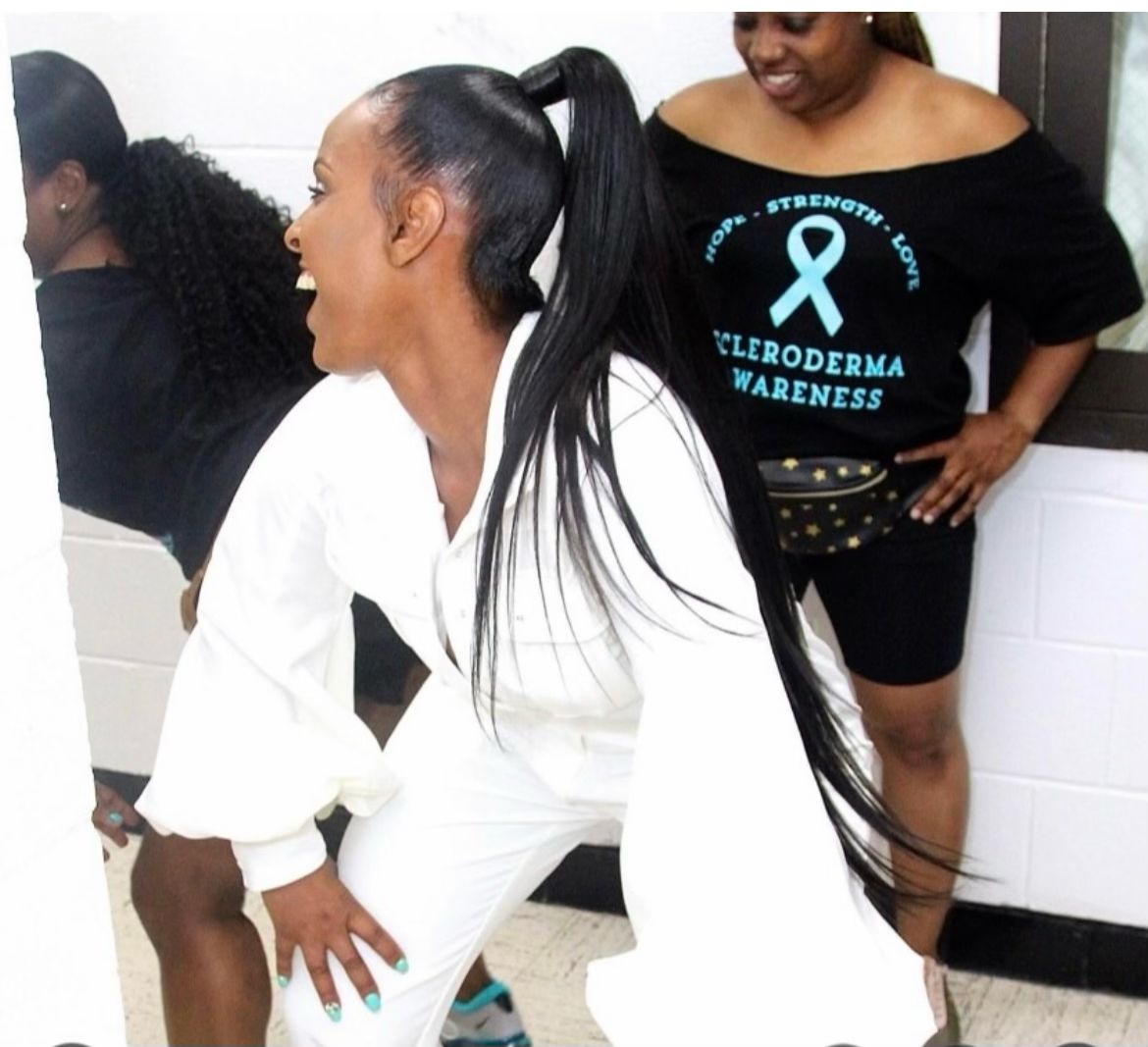
What was your thought process when you first heard the word scleroderma?
Like 90% of people, I asked the questions, “Will I die? Is it a deadly disease? How do I go from here with my process in trying to get some help?” The rheumatologist said, “Well, any disease can cause death if you don’t take care of yourself.” That was the best answer I could get. From that point on, we built a great relationship, the doctor and I. And I’ve been taking care of myself for the most part ever since.
How did you develop your “it coulda been worse” mindset?
When I first was diagnosed, between one and three years, I was very depressed. I didn’t know what this illness would do to me. I didn’t research it because I was avoiding what I may see or learn about it. Sometimes, I feel you feed the mind information you’re not ready for, and it triggers things to become worse. That’s my way of thinking.
My thought process was: Wow! Who’s going to take care of my children? How can I tell my children this diagnosis may change our lifestyle – that there might be some life changes ahead of us? I laid in bed for days and probably weeks, really, really nervous and worried about the outcomes.
One day, I got a phone call from a friend of mine who said to me, “Listen. What’s going on?” I expressed what the diagnosis was and a little bit about what I knew about it. They said to me, “Listen. It could be worse.” And I took to that.
I was like, “You know what, I didn’t think of it like that.” I started to research a little bit more about it right then and there. I started researching more about the diagnosis, more about the illness, more about the different types of illnesses. I have the diffuse diagnosis, which is the one that targets the organs.
I thought, let me see if there’s a walk – and I found it. They have a walk to celebrate those who have been affected by the disease and honor those who we’ve lost. I started to look at how the diagnosis targets our bodies. It made me very nervous. But I was ready based on that statement – or I thought I was ready. “Let me go and do this walk,” I decided. I learned about the walk, and I did it.
I saw people for the first time whose skin may have been different from the normal, or whose limbs may have been different from the normal. That shocked me. It caught me off guard, and I cried. I couldn’t process what was actually happening. I just prayed to God and said “I hope that’s not me. I hope that’s not me.”
I saw someone who had an oxygen tank, with the tubes in her nose and everything. She had just received surgery. She said to me, “Who are you here for?” I said, “I’m here for myself.” She said, “Wow! How do we get to look like that?” And I felt very guilty. Like, how am I supposed to look? Now all these things were going through my head – “how am I supposed to look?” I started to look around and see other people with very tight skin, very thin lips, loss of their limbs; and all these things were now triggering me. I stuck it through. But after that, I went into a deeper depression, knowing that there was a possibility that this could happen to me.
From that point, I said, “What can I do to make myself better?” I never missed a doctor’s appointment. Never. If I did miss an appointment, for whatever reason it might be (if I couldn’t get out of bed one day or whatever), I made sure that I visited the doctor in that same week or in the following week. I took my medication like I was supposed to. I started to learn about the different things I would eat that would trigger acid reflux. I took a step back on eating foods that might trigger certain things. And I exercise a lot. I got really deep into meditation, trying not to stress, and doing things to help me regulate my illness. I would go to spas and get massages to get my blood circulating. I would go to salt therapy to open up the airway, and I still do that. Not as much, but I do it.
I just enjoy life as much as I can without the extra stress and continue to learn and educate other people on how it’s not the end of the world. We can change things around and live a much healthier life than the norm that we are expecting.
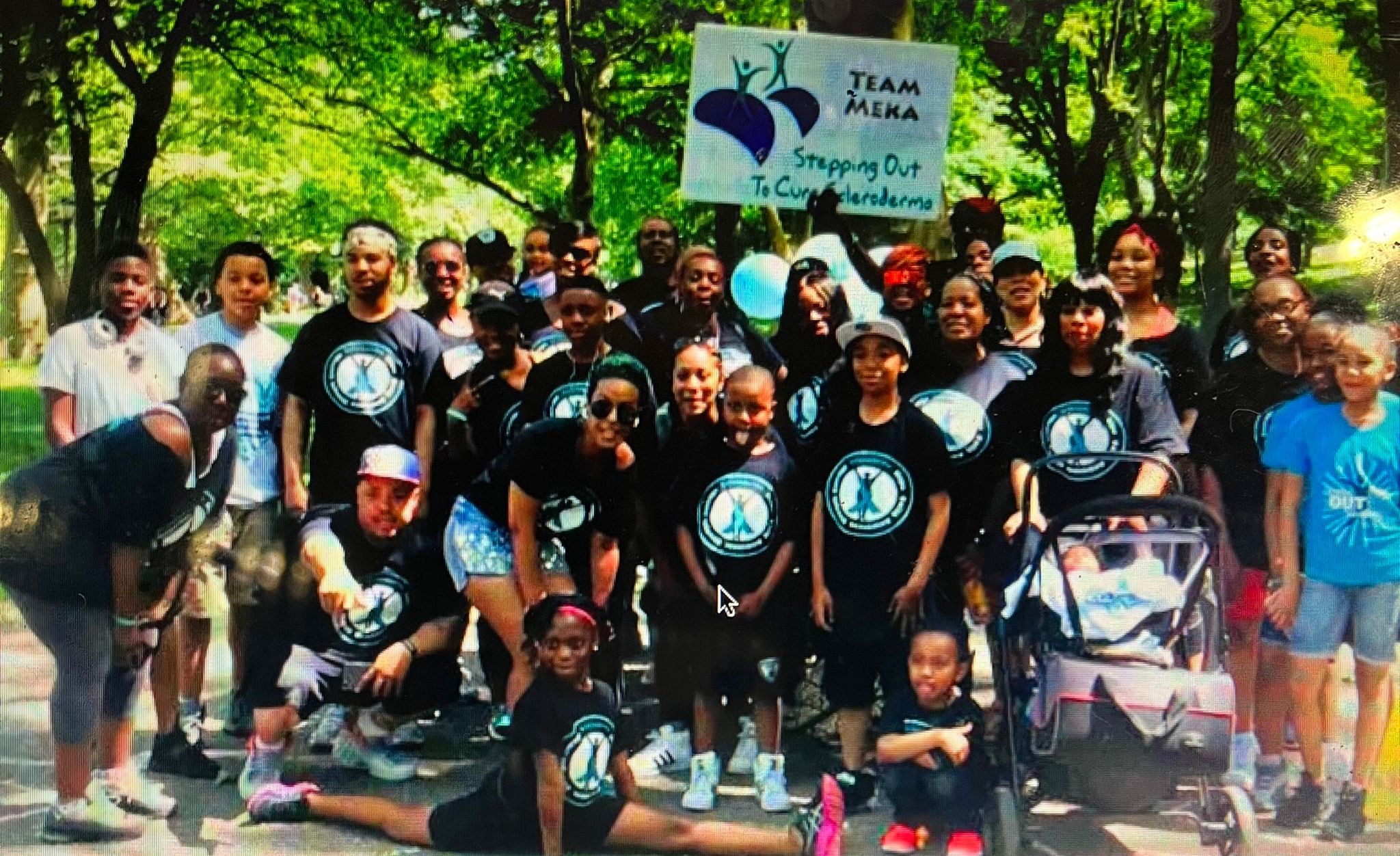
What medications have your doctors prescribed?
CellCept is one of the high doses of medication that I was prescribed for my lungs, omeprazole for acid reflux, and the Albuterol is for the pulmonary as well. I was taking 13 pills a day because the CellCept was like 6 a day, the omeprazole at the time was twice a day, and there was another pill that I was taking. I can’t remember, but they took me off of it because it was causing my blood pressure to go really low, and I didn’t really need it. I remember it was for blood flow.
I educate myself on the different medicines as well. I’m very stubborn, and the doctors will tell you that about me! If I don’t want to take the medication, I’m going to put that out there. I am not telling anyone who has an illness not to take medication, though. This is my choice, and it works for me. It might not work for them, but it works for me. So I don’t take the medication, and I substitute more of the natural and herbal stuff because other medications trigger things that I don’t want to trigger within my system.
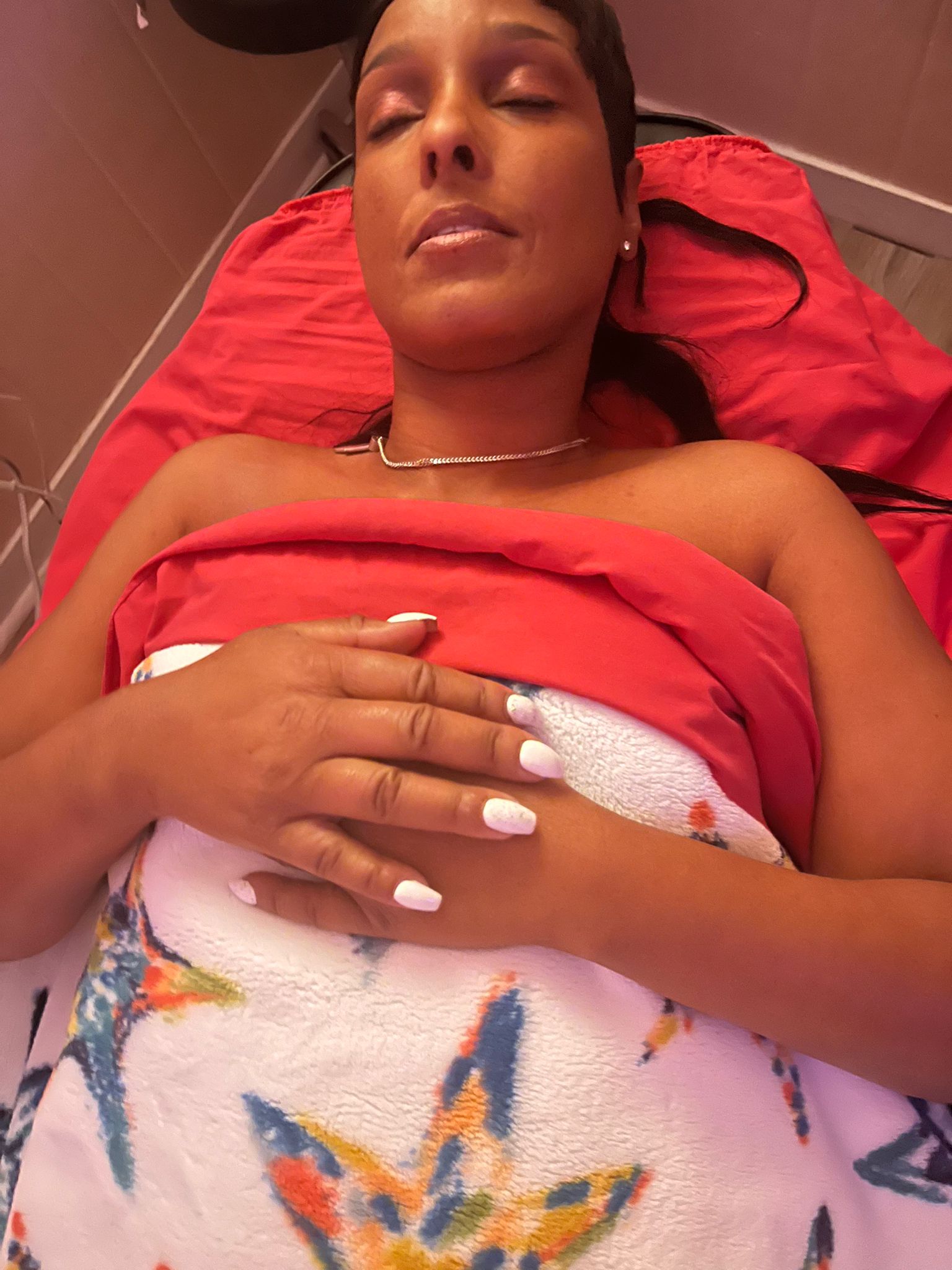
What lifestyle accommodations have you made?
A lot, so that’s a good question. Right now, my esophagus is affected by acid. To be honest with the world, I am back on omeprazole because I have to clear the airway. Sometimes, when I’m not taking my herbals like I’m supposed to, that’s what occurs. To regulate it, I go back on the medication for maybe 30-45 days, because it takes 30 days for the medication to actually work into the system. I get back off it once it’s regulated. Then I say to myself, “Okay, you have to make sure you’re doing your herbal remedies and whatever you need to do to regulate.”
I’m suffering a little bit because I am forcing my voice. I’m overworking. It becomes frustrating when I have to talk to my students or when I have to talk to people because sometimes they don’t understand me clearly because of that. In terms of my eating habits, I can’t enjoy the foods that I used to love so much.
It’s both good and not good. Sometimes, when your body is used to something for 20, 25, 30 years, and then you have to switch it, your body goes through a shock. It causes mood swings, cravings, and all those things. So I’ve been through that. My habits have changed. I do more meditating and try to get my mind to say “this is not good for you.”
I’m really able to be overly supportive, if that’s the word, for my children because I believe that they need all the support they can get. Sometimes, my body doesn’t allow me to move the way I want to physically because I’m sore. There’s inflammation in my hip, so sometimes I can’t walk long enough or do certain things. Breathing can be hard, so I can’t talk for a long period of time sometimes. I’ll take breaks. I can’t walk up a small flight of steps. It causes me to breathe harder and have my lungs work harder. So, I have to eliminate some of the things I shouldn’t do. I either cut down the time or just eliminate it.
As a high school guidance counselor, how do you adapt to challenges?
As a high school guidance counselor, I work remotely because of COVID and because my immune system is very low. Even with the immunization shot, I’m still at high risk of contracting COVID.
I love what I do. I’m just struggling now with possibly having to go back to work and what’s going on with my body. I can’t walk up a lot of steps, which is part of work – you have to see students. I go to the classroom to check in with them and make sure they don’t have any emergency issues teachers may need me for. That’s going to be a really big challenge for me. I’m pushing, and I’m hoping that people such as me who struggle with autoimmune deficiency will be able to continue to work remotely and not be stigmatized as disabled and unable to work – because we can still do the work! Times have changed.
There are millions of remote workers, and our work can still be done. The only thing that affects us is the fact that our immune systems are so low that we’re at high risk of contracting something. That’s the thing. We can work!
What are your hobbies?
I want to be an advocate for people such as ourselves. As I said, we are not disabled to the point where we can’t produce. I love to have a voice for people. I love to do motivational speaking. I’m looking to do more of that. Interviews like these help me out a lot. I did a great one with Ann, who has her own podcast (Mogil’s Mobcast) for scleroderma. She’s phenomenal. And this interview! I was so excited to do this. I love it. This is one of my hobbies.
I also love to dance. It helps you stay ten years younger. And I love enjoying my children and seeing them grow as young men – my grandchildren as well. In general, I enjoy spending time with my family.
And I have a t-shirt line called “It coulda been worse.” The slogan comes in different colors, and it represents all illnesses. You have pink for cancer, purple for lupus, things of that nature. Part of the proceeds were going to the Scleroderma Foundation.
I would also like to continue to have concerts spreading awareness about scleroderma with other illnesses. I just started my new t-shirt line called “Healed,” which I launched yesterday. Again, all of these have different colors. The ribbons represent different things.
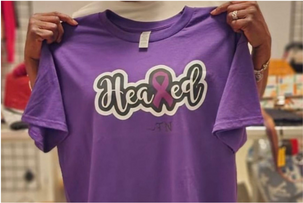
What kinds of advocacy are you involved in?
I was part of the Scleroderma Foundation in the tri-state area. I work with the directors. I share my stories. They reach out to me, and if they have interviewers to interview me for a story, I’m part of that.
With my shirts, I send out my story to everyone who purchases a shirt. They get a scleroderma band and a pamphlet to learn more about scleroderma. This way, my story gets shared around the world.
I also tap into people like my doctors. They deal with a lot of patients with scleroderma. My doctors share my story with their patients. I’m normal. I go in there like “Hey, Doc! What’s up?” We have this great relationship, and they love it. We just have a great time. And when other patients come in who are down and depressed with no hope, the doctors share my story with them. The doctors connect me with them to help, I hope, in what they are going through.
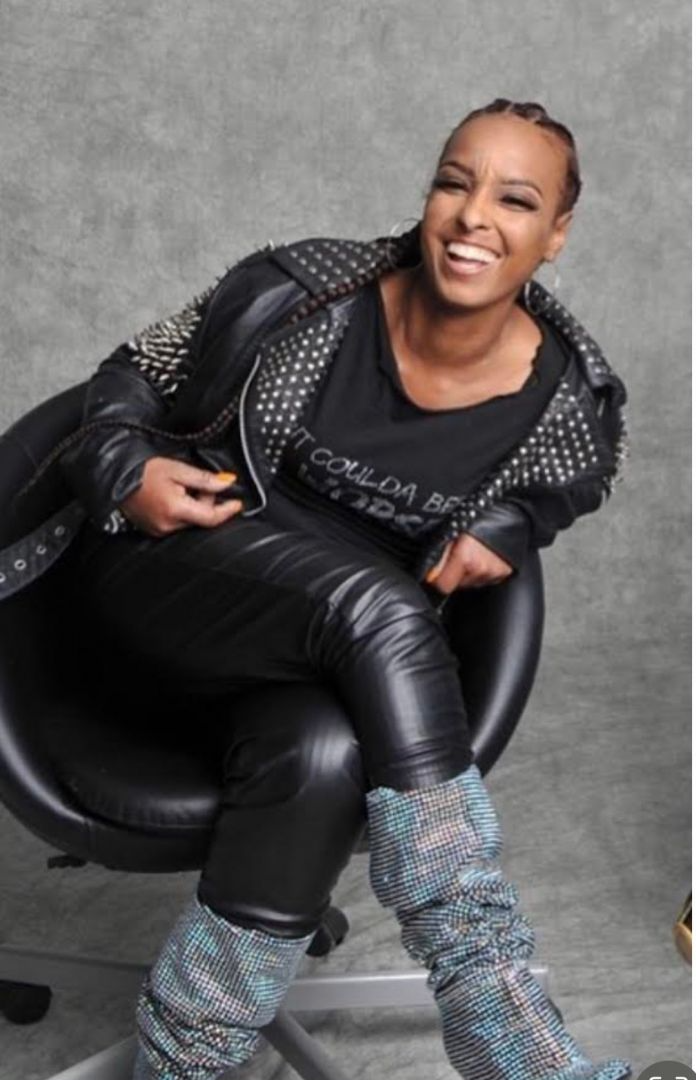
Could you please share your experiences with instilling hope in others?
I did a concert for the first time ever, and there was a young lady there who, I guess, was watching my page. And so it’s just so crazy… not crazy, but it’s a blessing how God works. I have a goddaughter (who actually has her own t-shirt line as well called “Resilient”) who knows the woman very well.
But I went to a cookout the week after I did the concert, and that young lady was there. My goddaughter wasn’t there. Someone else came up to me and said, “Tameka, there’s a young lady from Harlem who’s over there who would like to speak to you. She was diagnosed with scleroderma too, and she’s dying to have a conversation with you.”
These are the things that I’ve seen change: when I speak to them, then I start seeing them share their own stories. That’s what I look for. That’s my goal when I advocate and when I share and when I educate.
I’m tapping into those patients that I used to be, living underneath a rock because they are scared of what the world may perceive them to be or look like, or scared the world may make fun of them because of the tightening of their skin, the small lips, the pigmentation, the loss of hair… whatever it may be. When I see that now they’re coming out and they want to share, they want to be a part of the show, and they want to speak – THAT’S my work. I’ve been seeing more of that.
And the support system from the people who buy the shirts is great. They share my stories. They hit the share button on Instagram. They “@” this person and “@” that person – that’s what I’m looking for, and that has been happening, so now more and more people are learning about this. “Oh, I heard that before! Oh, I heard that!” That’s the goal.
What prompted you to start the “itcouldabeenworse_” Instagram page
I started it when I started to see change in how many people were coming out to share their stories with scleroderma and, really, all illnesses; I’m doing all illnesses. They go, “Hey, I’ve been diagnosed with cancer. It could have been worse, sure. Your story inspired me. I’m not going to go hide underneath a rock because the doctor said I have two years to live. It could have been worse. He could have said that I have two days to live.” That’s an example. Of course, you don’t want to hear two years, but I’m saying anything can change.
How has your diagnosis impacted your relationships and support system?
My family is very family oriented. My friends have been wonderful. And my mom, Arlene, she’s phenomenal. She’s always there, even more now than ever. My sisters, Asha and Joanne; my children, Tyler, BJ, and Noah; my grandchildren, Storm and Harmony; they enlighten me so much. My best friend, Janell. My brother and dance partner; Storm; my sister-in-law, Digna; my brother-in-law Kendu, my nieces Olivia and Sophia, and my nephews Seth and E’dreace. My sisterhood friends/family Asha, Tamara, Kia, Fendi, Janell and Nikki. We hung out enormously for my birthday. They flew down here, and we had a phenomenal time. It was so amazing to see the support and love that I have.
I push through because it helps people see that I am resilient, even with an illness. There’s hope for those who feel there is no hope for them. What I do say is that I have a superpower. When you speak those words and think those words; you manifest those words into the universe and it becomes just that. When you start saying, “I’m ill. I have this,” or that’ you manifest those things into the universe and those things start to occur. So be very careful of the words you speak and negative thoughts you allow into your mind. The reality is that yes, I was diagnosed with an illness. But in my mind – in the reality of my mind – I have a superpower to change and improve the world.
So, support is great. From the different podcasts that reached out to me to share my story, from the Scleroderma Foundation, from people who have supported me in all aspects of my life. Thank you for everything that you’ve done. It keeps me going. I’m writing a book right now. It’s called It Coulda Been Worse. It’s about my story and my life.
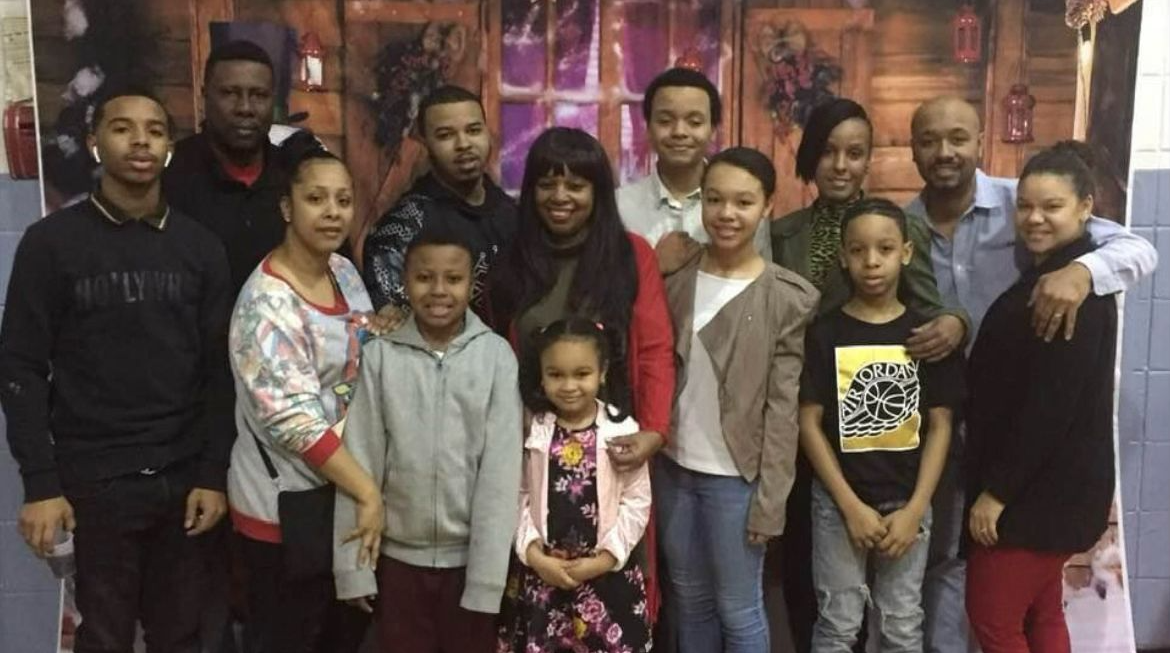
Is there anything you wish you had known earlier?
I wish I knew more about eating habits, and I think we all struggle with that. I think 99.9% of all illnesses come from our eating habits. I think if we change the way we eat, we’ll see less illnesses occur. Not saying completely, but we can catch them in time. I want to promote “health is wealth,” because that’s really what it is. It’s not about money. It’s the health part. That’s where the wealth really comes in.
We don’t know everything, and we’re not going to know everything. My blessing is being able to know it in time to change, if that makes sense.
Do you have any final advice for patients with chronic illnesses or scleroderma specifically?
For everyone and for all illnesses, I always try to instill in everyone that life is a challenge. We’re going to go through challenges regardless of our lives, regardless of our money and regardless of our money and regardless of our daily living and routines. It’s how we get through that challenge that defines us – to have that strength is so important.
Challenges are learning experiences. Stop looking at a challenge as a negative, because it’s not. Challenges set you up to become stronger and to be able to deal with life’s situations without becoming stressed. It’s the educational aspect of life. Tackle those challenges as positive, and always look at every outcome in your life as a positive. Because no matter what you’re going through, it could have been worse.
Is there anything else you’d like to share?
Yes! I would love for everyone, if you can, to follow me on IG: @itcouldabeenworse_. You can reach out to me in a DM if you would like to meet personally about anything that you’re going through. If anyone’s in need of a motivational speaker, I’m open to joining your event and sharing my story. And if you want to purchase an “It coulda been worse” shirt or my new line called “Healed” – you put that in existence – we are healed, feel free to DM me on the same IG page. Thank you all so much for the support. And always remember, No Matter What You’re Going Through.. “ It Coulda Been Worse”
Be sure to follow us on Instagram and Facebook (@sclerounited) to see more scleroderma warriors’ journeys in our weekly Sclero Sunday series.
Are you a scleroderma warrior? We’d love to interview you for Scleroderma Stories! Please visit tinyurl.com/share-my-sclero-story or email us at contact@sclerounited.us
